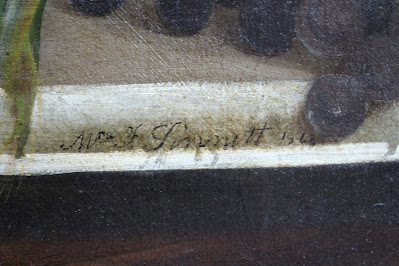by Susan Zehnder, Education Director
At 5 am on November 7, 2023, our executive director arrived at work to unlock the museum’s doors. It was New York State’s General Election Day, and the Chemung County Historical Society welcomed voters from county districts 09-05/11-04, and 11-05. Poll workers arrived, set up, and were open for voters at 6 am. Polls closed at 9 pm. Before the end of the day, more than 200 people walked through the doors and our archivist stayed until 10 pm to lock up.
Many voters had never been in our building before. After
voting, they took advantage of the museum’s free admission for the day to
explore. Others took a quick look around, vowing to come back to see more. We
even had a few tell us they wanted to donate items to our collection.
It was the first time CCHS was a polling site. In the United
States, the majority of polling places are located in public schools. This
makes sense because they are situated throughout the community. Most school
buildings have good accessibility features, and are designed with large rooms,
like gymnasiums or cafeterias, which can accommodate polling equipment and poll
workers. Schools also have sufficient parking to handle the flow of traffic.
Unfortunately, what makes less sense, is the disruption
Election Day can bring to schools and student routines. Concerns about safety
make it more problematic.
We thought we could help and in the fall of 2022, we contacted
the Chemung County Board of Elections. We have ample parking, a good-sized
education room, and our museum is all on one level. Local Election Board
officials visited then sent an independent inspector to evaluate voter
accessibility. There were a few things that needed to be addressed, but
overall, the officials agreed CCHS would be a good site and we were granted the
right to host an election in the spring.
The New York State Board
of Elections is responsible for defining all New York State election laws and
rules for each of the state’s 62 counties. The Board mandates what the
national, state, county, city, and town elections look like on the local level
tasking local administration to the Chemung County Board of Elections. Local
boards also provide election supplies to villages, fire districts, and school
districts that conduct their own elections. They register eligible citizens to
vote, and they perform various public education services including providing information
to candidates seeking elective office. Local boards also accept and rule on voter
petitions.
The Chemung County Board
of Elections consists of two Election Commissioners. The commissioners are elected
by county committees of their same political party and must be approved by the
county legislature. Each are supported by two Deputy Commissioners and office
staff.
According to the Chemung County Board of Elections, as of May 2023, the county has 55,480 registered voters. The unofficial results from November 7th, indicate that only 9,063 voters or 16% of eligible voters cast their vote. The election results aren’t official until after the required recount on November 22nd since races in Districts 1, 2, and 4 remained too close to call.
Voting, or having a voice in their government, is a key part of democracy. The United States is founded on the idea of freedom, and our nation’s history contains the struggle of different groups of Americans fighting to secure their vote. Voting reflects how engaged the public is.
According to the Brennan Center for Justice, a nonpartisan policy and law institute inspired on the work of United States Supreme Court Justice William J. Brennan, Jr., more states, about 19, have recently passed legislation making it harder to vote. Some of these laws require people to present IDs, or they take away the vote from anyone previously convicted of a felony. Others severely restrict early and absentee voting, and remove voters’ names from lists if they haven’t recently voted. Since 2020, only 17 US states have passed legislation making it easier to vote. Is voting important? In reference to the 16% of Chemung County voters who voted on November 7th, Chemung County’s Democratic Committee Chair Jamal Malik recently said, “The future of the city council is in the hands of a very few people. I think it was like 17% of the eligible voters came out and voted. So, every vote counts, and it's important that people get engaged, civically get engaged, not just be registered to vote, but actually go out and vote and that's the message that needs to be crystal clear to everyone.”
We hope that county voter engagement grows. Since the Chemung
County Historical Society collects history through artifacts and documents of
the County, we have items from elections more than 100 years old. We’ve been
sharing some of these online in our weekly posts. This past fall, we were also
pleased to be selected by the Smithsonian Institution’s Museums on Main Street
program to be one of twelve sites to host a traveling exhibit called Voices and
Votes. We won’t be getting the exhibition until fall of 2025, but have started
planning for an accompanying display and programs to highlight voting in
Chemung County. We’ll be sharing more details about this exciting project in
the future.
Granted, 5 am was a pretty early start to the day, but well worth it to participate in local democracy.
To see more about voting in Chemung County's past, check out our online exhibit Vote! Chemung County
 |
| Voting machine used from 1962 - 1982, CCHS Collection |


.jpg)


